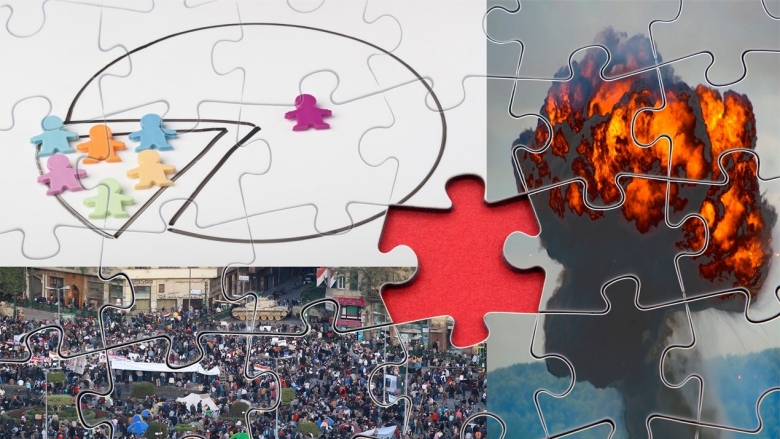The Arab uprisings in Tunisia, Egypt, Yemen, Libya, and Syria over the past five years represent a conundrum. Standard development indicators failed to capture or predict the outburst of popular anger during the so-called Arab Spring of 2011.
The World Bank's Elena Ianchovichina and Shantayanan Devarajan will discuss the findings of their recent report Inequality, Uprisings, and Conflict in the Arab World, and reflect on the economic origins of the Arab revolts. While many believe that income inequality was the most significant cause of the uprisings, the report weighs the role of other major drivers, mainly citizen frustrations with a shortage of quality jobs in the formal sector, poor quality public services, and governance issues. Carnegie's Joseph Bahout will moderate.
